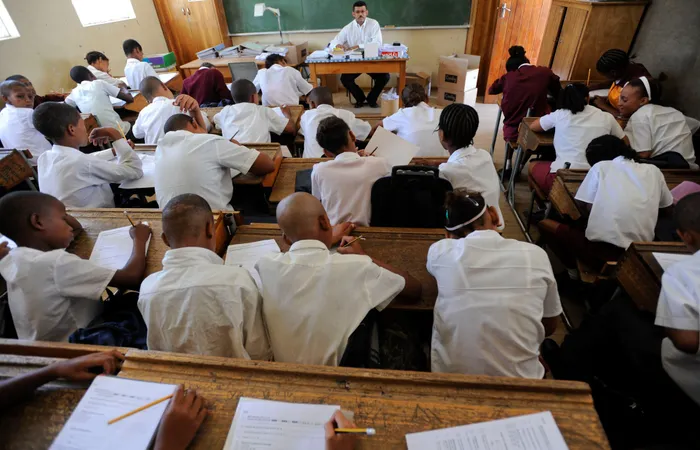SA education falling behind in the digital age of learning

File Photo: Matthew Jordaan
Pretoria – A recent report by Afrika Tikkun Foundation (ATF) has warned that barriers to literacy in South Africa continue to hold the country back from reaping the benefits of the digital age of learning enjoyed by the developed world.
According to the report, studies have shown that literacy levels are higher in a household with access to the internet and a mobile device than those without access and in the absence of books, mobile devices are the only source of any literature for many homes.
“But in a country like SA, access to these devices is not evenly distributed and inequality has locked millions out of the fourth industrial revolution (4IR),” read the report.
ATF said it was time to give children the learning environment they deserved, one that would provide resources that are relevant to their circumstances, not just a one-size-fits-all approach to education.
“We have seen how poverty and inequality create limitations for South Africa and prevent us from truly embracing the digital age.
“Failures in the education system during the Covid-19 pandemic showed that there needs to be more deliberate and tailored solutions to illiteracy which take the environment into consideration,” said ATF chief operating officer Sipho Mamize.
The UN Educational Scientific and Cultural Organisation (Unesco) found in one study that mobile devices can dramatically improve literacy rates in developing countries.
“It is at this intersection in the lives of South Africa’s children that society needs to make the biggest effort. It has been seven years since the learners of Gauteng were promised a future of paperless classrooms, with the hope that this will be rolled out nationally,” Mamize added.
Meanwhile, South Africa is considered one of the more technologically advanced countries in Africa with the highest number of domains and websites of the Southern African Development Communities (SADC) region.
Despite this, ATF said the country still falls far behind the rest of the world in terms of individual digital literacy and much of its population is left in the dark when it comes to the benefits of online learning.
A 2016 study by a number of South African universities found that 58% of children could not read with comprehension by the end of Grade 4, while 29% were classified as illiterate.
“The bulk of South Africa’s schools lack the basic infrastructure to provide for the needs of its learners, while most households struggle to provide the basic needs to provide children with a nurturing home that’s conducive to learning,” read the report.
Many children’s parents and caregivers are illiterate.
In 2019, 4.4 million adults in South Africa were illiterate, according to the Department of Higher Education and Training. The illiteracy rates stood at 11.6 percent for men and 12.5 percent for women.
As learner illiteracy levels prevail, public and school libraries are dwindling in numbers due to neglect, violent protest action and vandalism.
“This is worrying because libraries are also one of the primary ways low-income communities access the internet outside of internet cafés and privately owned devices,” added Mamize.
IOL